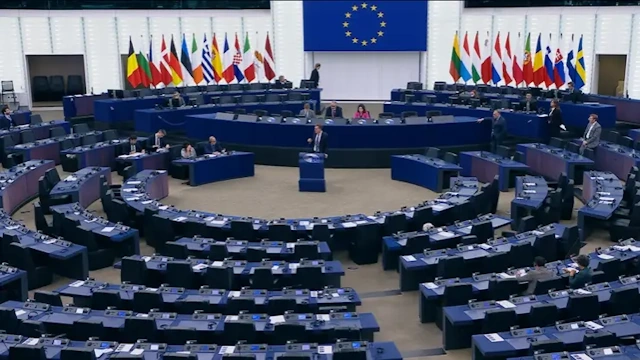Report – The European Parliament recently discussed (Tuesday, October 22) the future of relations between the European Union and Tunisia in light of the political, economic and human rights challenges facing Tunisia. This discussion comes in the context of a strategic partnership between the European Union and Tunisia, which is an important neighbor with a significant impact on the stability of the region. With increasing criticism of the decline in democracy and human rights in Tunisia, including the repression of opponents, the restriction of freedoms and the harsh treatment of migrants, the European Union faces a challenge to strike a balance between supporting Tunisia’s stability and ensuring its respect for democratic values. In this discussion, urgent demands emerged to strengthen human rights and pressure the Tunisian authorities to adopt more open policies, with an emphasis on the importance of ongoing dialogue and economic support as tools to strengthen the partnership and overcome current crises.
Plenary session – 22.10.2024
Summary
The European Parliament discussed the dimensions of the EU-Tunisia strategic partnership, with speakers, including Commissioner Helena Dalli and MEPs from different countries, focusing on democratic, economic and humanitarian issues in Tunisia. Speakers addressed the democratic backsliding in Tunisia following the recent presidential elections, which saw low turnout and were accompanied by accusations of persecution of opponents and migrants.
The European Parliament expressed concern about human rights violations, the arrest of activists and journalists, and the harsh treatment of migrants. Members stressed the importance of ongoing dialogue with the Tunisian authorities, as Tunisia maintains its status as a strategic partner of the EU due to its geographical location and political importance. Despite criticism, the EU sought to strike a balance between preserving this partnership and demanding that Tunisia respect human rights and the rule of law.
Key points of discussion
Political and diplomatic framework: Members noted the importance of EU-Tunisia relations, emphasizing Tunisia’s strategic role as a bridge to the southern Mediterranean, and its importance for migration and regional stability. The EU sought to strike a balance between its support for Tunisia and pressuring the current regime to respect European values such as democracy and human rights.
Key issues
- Political and democratic situation: Criticism of the Tunisian regime has increased due to repressive measures against opponents and restrictions on freedoms.
- Economic challenges: Economic and social problems persist despite some improvement, especially in the tourism sector.
- Migration: Parliament stressed cooperation on irregular migration issues between Tunisia and Europe, stressing the need to respect the rights of migrants.
- Human rights: Members called for an end to funding for parties contributing to repression in Tunisia, and for the promotion of fundamental rights.
The debate reflected a strong European interest in the future of Tunisia, with sharp criticism and demands for real reforms that would ensure the preservation of democracy and stability in the region.





